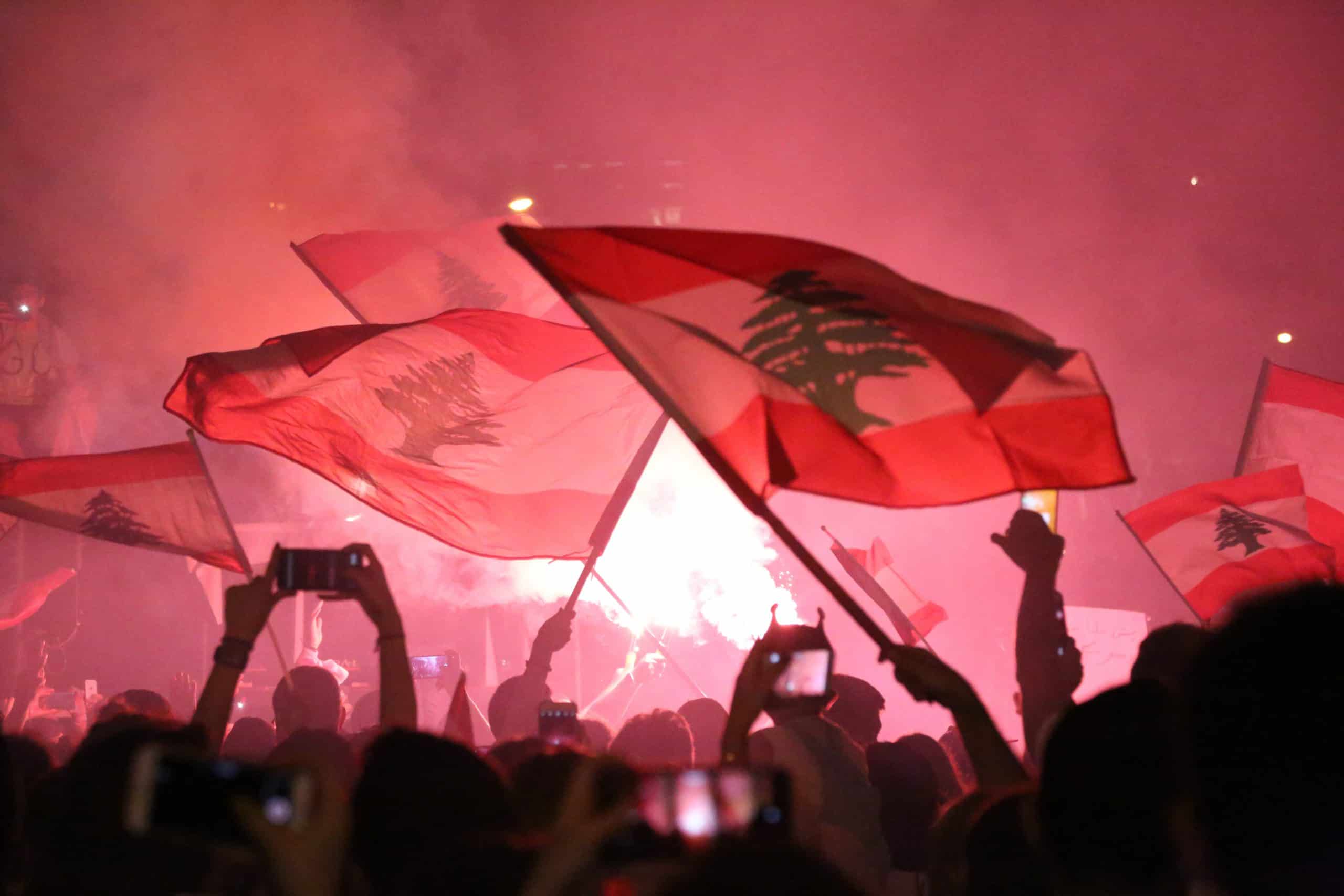Since the 1990s, the Iranian-backed militant and political group Hezbollah has expanded its influence throughout Lebanon’s political, economic, and societal systems. However, many Lebanese citizens and experts have criticized the group for prioritizing Iran’s geopolitical agenda over the needs of the Lebanese people. This is concerning given Lebanon is struggling to contain the spread of the COVID-19 pandemic and is also grappling with a severe economic crisis. Many critics are especially directing their ire towards Hassan Nasrallah, the Secretary-General of Hezbollah. As discontent grows, it is becoming clear that Lebanon’s political power structure needs to change if the country is going to recover and rebuild.
Hezbollah is a Shiite Muslim militant and political group established after the 15-year Lebanese Civil War. The group receives significant financial support from Iran. As a result, it has adopted many components of Iran’s geopolitical agenda, including opposition to Israel and Western presence in the Middle East. Hezbollah is considered a designated terrorist organization by powers such as the United States and many Arab League members.
Hassan Nasrallah assumed leadership of Hezbollah in 1992 after then-lead Sheikh Abbas al-Musawi was killed during an Israeli attack. Under Nasrallah’s leadership, Hezbollah has accrued significant political, economic, and social power in the country. Initially, the group was considered an Islamist militia. However, Nasrallah inserted Hezbollah into Lebanon’s political system and carved out a role for himself as a political leader. In 1992, eight members of Hezbollah were elected to Lebanon’s parliament. During the country’s most recent national elections in 2018, Hezbollah won 13 parliamentary seats. Since then, the terrorist organization holds several cabinet positions, further increasing its power within Lebanon.
In addition, Nasrallah established numerous social welfare programs, which enabled Hezbollah to win support from many across Lebanese society. These include projects that focus on infrastructure development, healthcare, education, and youth programs. Hezbollah also operates a large military arsenal. According to a 2018 report from the Center for Strategic and International Studies, the group is the world’s most heavily armed non-state actor. Today, Hezbollah wields a significant amount of influence over Lebanon’s political, economic, and social levers.
However, despite Hezbollah’s efforts to institute social welfare and political and economic reform efforts, Lebanon’s economic prospects have gradually tanked. Following the Lebanese Civil War, the government implemented numerous macroeconomic policies to try and boost Lebanon’s economy. As a result, Lebanon’s economy became import and foreign-currency dependent, and local production was deprioritized. Simultaneously, the Lebanese government began accruing significant debt to modernize the country. These projects benefitted the country’s elite, including Hezbollah, and encouraged untethered borrowing, corruption, mismanagement.
Over the past several years, income inequality and unemployment in Lebanon have both increased. Indeed, the COVID-19 pandemic and associated national lockdowns further exacerbated these issues. Finally, in 2019, inflows of dollars declined significantly, sparking an economic crisis that the World Bank has described as one of the worst economic depressions in recent history.
Given Lebanon’s current economic situation, Nasrallah and Hezbollah are now the subjects of significant criticism. In particular, many critics have flagged how Nasrallah and other Hezbollah elites have continuously profited off the country’s corrupt institutions rather than serving the needs of the Lebanese people. According to the latest Corruption Perceptions Index, Lebanon scores a mere 25 out of 100, reflecting the deeply entrenched nature of corruption in the country. In addition, Hezbollah has continuously sabotaged the country’s efforts to rectify its economic issues. Reports from last fall indicate that Hezbollah aggressively campaigned against the International Monetary Fund (IMF) when it became public that the Lebanese government was pursuing negotiations related to rescheduling its debt. Many consider Hezbollah’s refusal to cooperate as one of the key reasons the Lebanese government could not address some of the country’s pressing financial issues. Others noted that Lebanon’s fragile state made it easy for Hezbollah and Iran to exploit the country’s systems. Additionally, despite some Western efforts to support Lebanon during the current crisis, Hezbollah has encouraged importing goods via illegal channels from Iran and China while undermining ties with Western nations. This demonstrates how the group prioritizes its relations with Iran over the needs of its people.
Other analysts have noted how little the government has done to crack down on illicit practices, partly because Hezbollah benefits from these initiatives. For example, today, Lebanon is home to a vast human trafficking network that targets vulnerable groups such as Syrian refugees, illegal migrants, and domestic workers. The country also lacks any meaningful controls that could help prevent money laundering and drug trafficking. The absence of such enforcement mechanisms and ongoing corruption has decreased the quality of life for the average Lebanese person and undermined Lebanon’s standing in the global arena while allowing Hezbollah to profit.
For several decades, Hezbollah and its leader, Hassan Nasrallah, have expanded the group and Iran’s influence in Lebanon’s social, economic, and political structures. However, as Lebanon faces growing economic turmoil, many are blaming Hezbollah and its leaders for prioritizing Iran’s needs over the needs of the Lebanese people. If Lebanon is going to recover and prosper, it needs to evade Hezbollah’s firm grip on the country’s institutions.



















